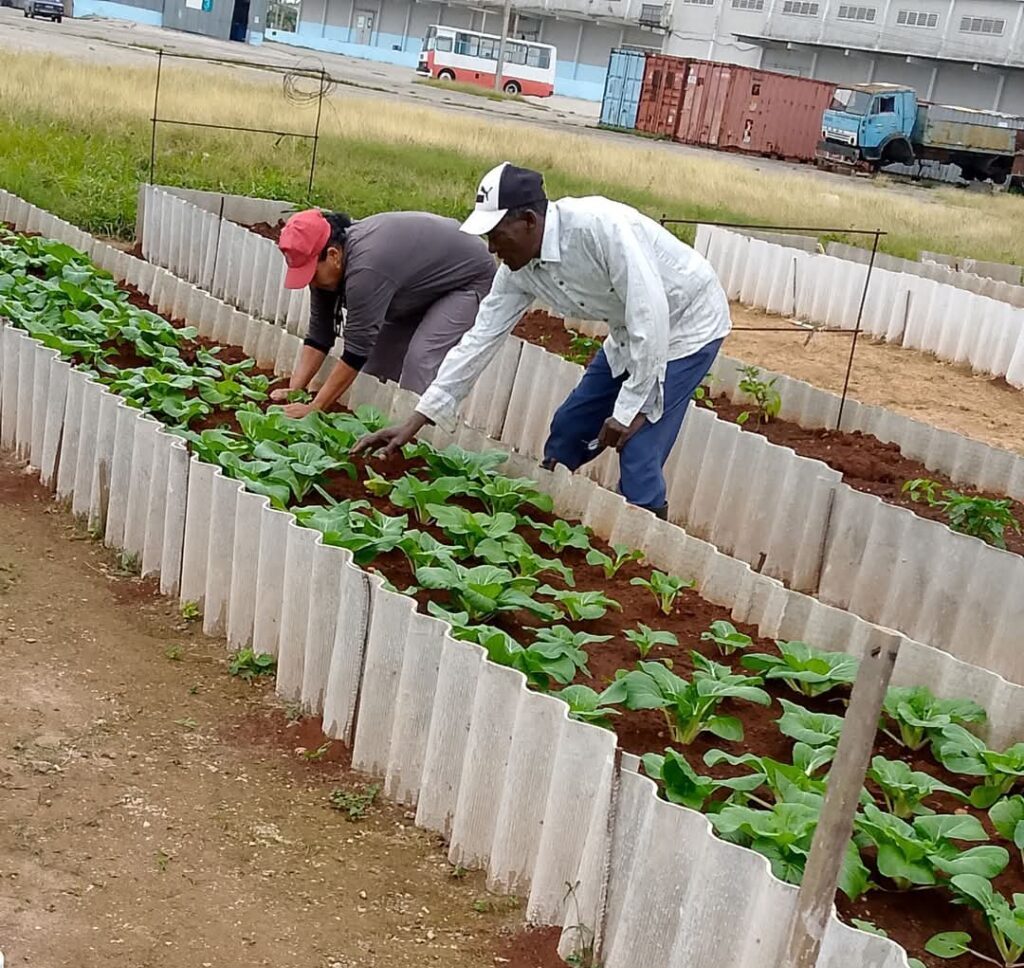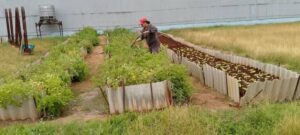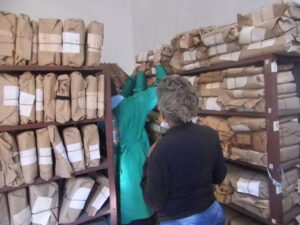Few entities are requesting land for their own cultivation.

Aware of the much that remains to be done, the Central Organization of Cuban Workers (CTC) and its unions in Matanzas face the challenge of continuing to urge entities to request idle land for the creation of self-sufficient farms, given the slow progress in this area, which the workers’ organization considers strategic.

Aware of the much that needs to be done, the Central Workers’ Union of Cuba (CTC) and its unions in Matanzas face the challenge of continuing to demand that entities request idle land for the creation of self-sufficiency projects, due to the lack of progress in this area, which the workers’ organization considers strategic.

Some groups still don’t understand the value of requesting idle land or cultivating areas near their workplaces. Photo: Taken from the Universal Matanzas Facebook page.
According to the report presented at the Provincial Secretariat’s monthly meeting, only 308 business entities hold usufruct rights to land, totaling 6,948 hectares, «insufficient, considering the number of collectives pending,» it was stated.
Despite their potential, centers belonging to the Ministries of Domestic Trade, Industries, and Energy and Mines, as well as those of BioCubaFarma, ETECSA, and the tourism supplier ITH, have not yet joined the effort.
Among the factors contributing to this non-compliance are the delayed process for allocating idle lands under Decree 358/2018, and the limited progress in establishing work collectives within the structures of productive entities such as credit and service cooperatives, agricultural production cooperatives, and basic cooperative production units.
Also cited is the limited use of animal traction as a substitute for mechanized farming due to fuel shortages, as well as requested land that has not yet been put into production, and insufficient work in disbursing financial loans under Resolution 173/2021.
Osmar Ramírez Ramírez, general secretary of the CTC in the province, encouraged union leaders at all levels, but especially at the grassroots level, to utilize the organization’s natural resources to turn the situation around.
«The governing councils, the assemblies of representatives, members, and workers are there to demand that the administration react and finalize the land requests to convert them into farms, urban gardens, or raised beds,» he insisted.
These are alternatives, he considered, that would help increase food production, lower prices, and is another attempt to prevent wages from suffering so much, because everything we can do in this regard may seem small, but if we really try, we would be contributing our part from the union movement, Ramírez reasoned.
Another questioned aspect relates to the livestock modules, which are at 85 percent completion, since 33 of the 274 planned modules are still missing, and this requires immediate change, the interventions agreed, because it represents an alternative in increasing the kilocalories in the workers’ dining halls and thus contribute to better care for the members and workers.
Cover photo: The team at the Universal Matanzas Basic Business Unit is one of the most outstanding in managing their land for planting root vegetables and other produce. Photo: Taken from the Universal Matanzas Facebook page.
Written by Eva Luna Acosta Armiñán.




